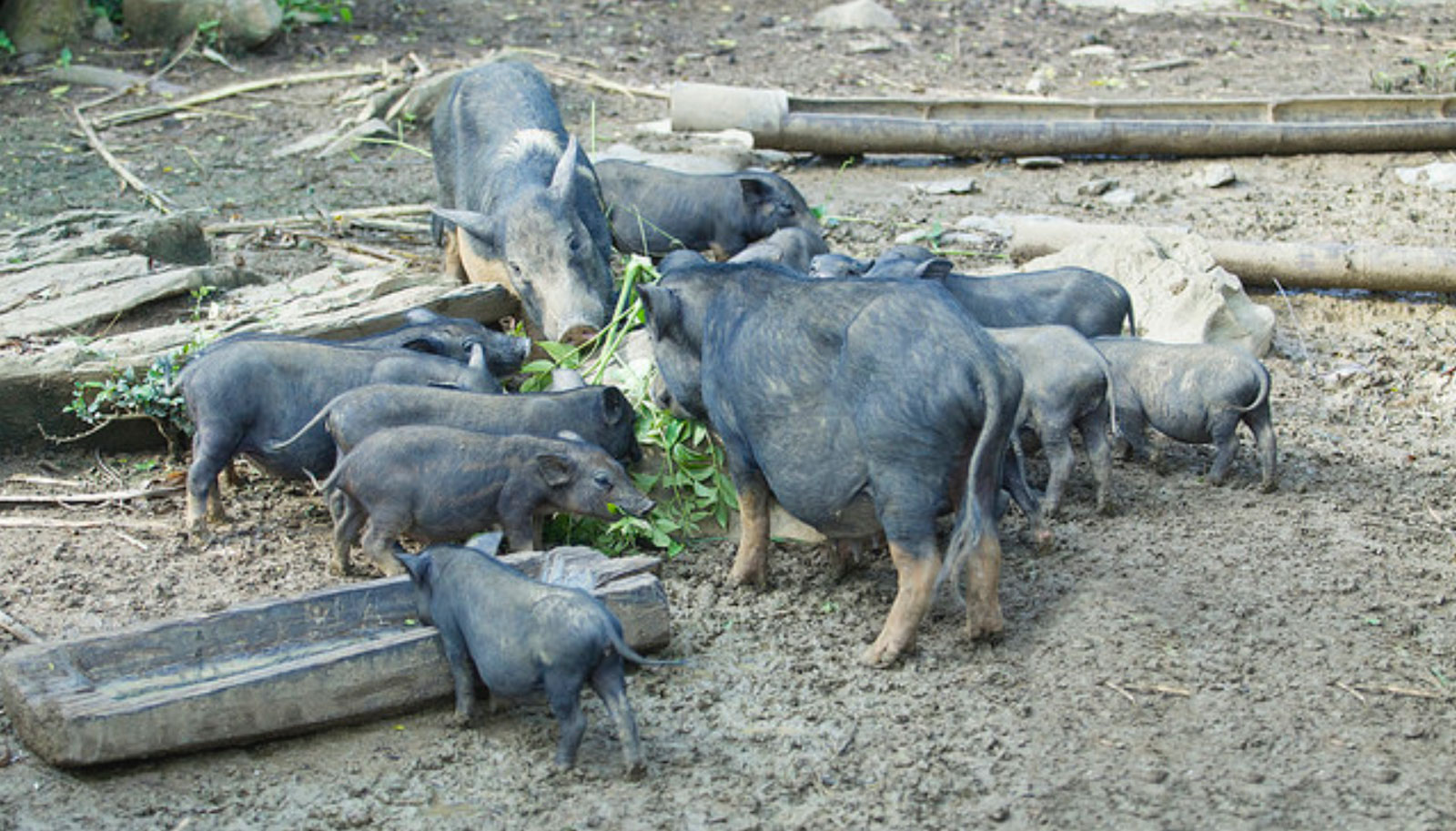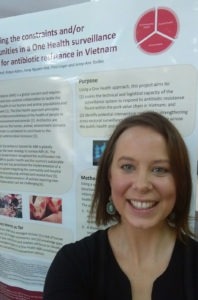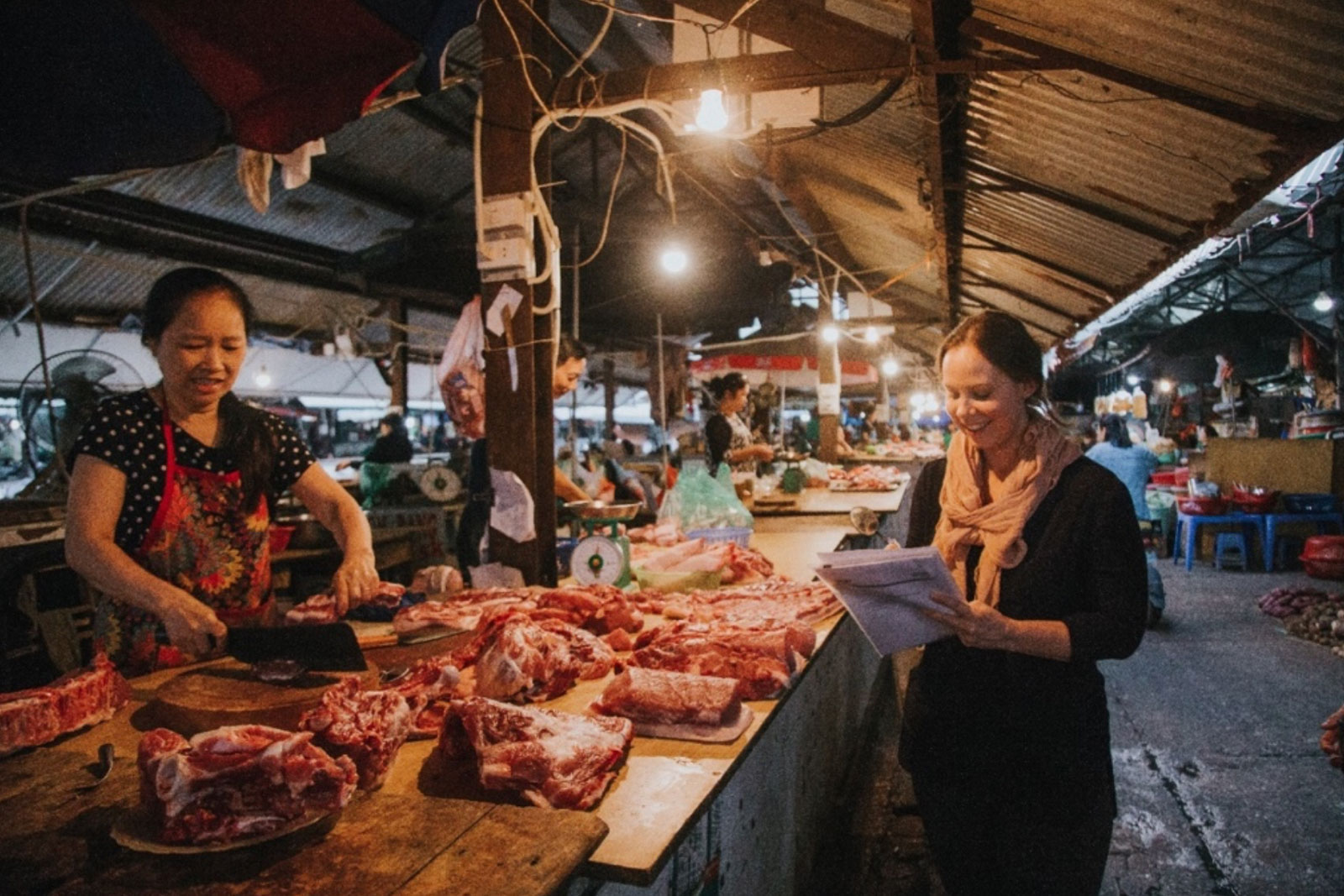

Understanding antibiotic resistance in the pork food chain in Vietnam
May 28, 2019
As part of our efforts to support and encourage young Australians in study, careers and volunteering in international agricultural research, the Crawford Fund State Committees proudly support our International Agricultural Student Awards. The 2018 recipients of these Awards were announced in May, and we are enjoying the process of sharing the journey of these 22 dynamic Australian tertiary students as they gain international agricultural research experience and expertise.
Throughout 2018 and the early part of this year, the successful Award recipients will travel to their host countries to research and explore their chosen topic areas. You can follow their progress here on the Crawford Fund website and read more about their findings, learnings and any challenges they encounter.
To-date we have featured the experiences of University of Western Australia student, Christian Berger; Queensland University of Technology PhD candidate, Thomas Noble; University of Melbourne student, Kimberly Pellosis; Luisa Olmo from the University of Sydney; Rachael Wood from Charles Sturt University; University of Melbourne student Ziyang Loh; Lucinda Dunn from the University of Sydney; Jessica Fearnley from the University of New England; the Australian National University’s Jacinta Watkins, University of Queensland Honours student, Tamaya Peressini, the University of Adelaide’s Mathu Indren, University of the Sunshine Coast PhD student Samantha Nowland, and most recently, Charles Sturt University student, Brooke Kaveney.
Now, thanks to The Crawford Fund NSW Committee, we deliver this summary of University of Sydney Master’s student, Marisa Mitchell’s experience in Vietnam as part of an ACIAR SafePork project.

In June 2018 Marisa moved to Vietnam to complete a 12-month Australian Volunteer assignment working with the International Livestock Research Institute (ILRI) under the Australian Volunteer government program. Simultaneously, she completed her Master of Health Security (agrosecurity) dissertation with support from the Crawford Fund Student Award. The dissertation contributes to the ACIAR-funded SafePork project (LS/2016/143), an ILRI-managed research project with Vietnam partner organisations.
“My project aimed to increase our understanding of the challenges to investigating antibiotic resistant foodborne bacteria along the pork-value-chain and the opportunities to strengthen a One Health approach to surveillance of antibiotic resistance in Vietnam,” said Marisa.
According to the WHO, ‘One Health’ is an approach to designing and implementing programmes, policies, legislation and research in which multiple sectors communicate and work together to achieve better public health outcomes.
Globally, antibiotic resistance is threatening human and animal health by reducing our ability to treat diseases and by causing complications to medical procedures. The environment, public health care sector and animal health sector are all considered to be contributing to the development of resistance. In low-and middle-income countries, the health threat is of even greater concern due to poor access to health services, the high burden of infectious disease in the general population, and the comparatively uncontrolled use of antibiotics in healthcare and food production.

“Vietnam is a potential hot spot for the emergence of antibiotic resistance due to the high burden of infectious and foodborne disease coupled with relatively unregulated access to antibiotics for humans and high antimicrobial usage in livestock. In food animal production systems, antibiotics are employed to treat infectious diseases, as growth promotants to increase productivity or as a preventative health measure. The level of foodborne antibiotic resistant bacteria is currently unknown due to the lack of a sufficient surveillance system,” said Marisa.
“Although antibiotic resistance is a natural biological phenomenon, there are cultural, political and economic processes that shape the dynamics of these biological mechanisms which can determine its impact on the health of animals, humans and the environment. Due to the complexity of antibiotic resistance, a One Health surveillance system for antibiotic resistance is strongly advocated by the international community.”
As part of the research project, Marisa undertook interviews people working across the human and animal health sectors in Hanoi.
“With the assistance of The Crawford Fund via the Student Award Scholarship I was able to travel around Hanoi, Vietnam, scope out with whom I need to speak and begin to understand more about the situation in country. Spending time in Vietnam and talking with local professionals provided me with a greater understanding of the situation on the ground and what other challenges the country faces when trying to tackle antibiotic resistance. With the support of the grant I had the flexibility and time to adapt the research objectives to better align with the local context”, said Marisa.
“Using qualitative methodology, I conducted 11 semi-structured interviews with a total of 12 key informants working across the animal health (8; 2 men and 6 women) and human health (4; 3 men and 1 woman) sectors in Hanoi. The recorded interviews were conducted in English or Vietnamese with an interpreter, then transcribed and translated for analysis. Thematic analysis of the data was employed to generate themes to determine the challenges and constraints in investigation processes and participant perspectives on a One Health approach to antibiotic resistance surveillance.”
“As a student researcher working in a middle-income country for the first time I really wanted to make sure I could relay the participants’ perspectives and insights accurately. Without the assistance of the Crawford Fund Student Award I would not have been able to have the interviews transcribed and translated from the recorded interviews. Although I had a translator during the interviews, I found that having a transcript of the interviews provided me with the ability to analyse the data in greater detail and discover information which was not immediately recognised during the interviews.”
The Student Award also funded Marisa’s visit to Ho Chi Minh City, Vietnam, to attend a One Health and Microbiology Conference and present a poster entitled ‘Identifying the constraints and/or opportunities in a One Health surveillance system for antibiotic resistance in Viet Nam’ (Mitchell et al. 2018).
The key findings from Marisa’s study suggest that, participants perceive that:
- the use of antibiotics within animal food production systems is a key driver of antibiotic resistance in human health in Vietnam;
- there is divergence of opinions on laboratory capacity by sector and discipline; and,
- there is insufficient data available and data sharing between sectors.
This study found that a One Health approach is favoured by participants working on antibiotic resistant projects across the human and animal health sectors. The data gathered helps strengthen evidence required to deliver policy decisions that will facilitate effective and efficient implementation of a One Health approach to antibiotic resistance surveillance in Vietnam.

“The knowledge I have gained from this project has strengthened my understanding of One Health and my belief that to tackle global issues such as antibiotic resistance, further consideration of building and strengthening effective collaboration between the human health and animal sectors is needed. The issues and concerns raised by stakeholders in Vietnam are applicable in Australia as well as many other countries who are developing their understanding of how to tackle antibiotic resistance.”
“I would like to express deep gratitude to Associate Professor Jenny-Ann, for her guidance and support in the development of this research idea and Professor Robyn Alders for her comments, encouragement and inspiration. I have been incredibly fortunate to have had two immensely knowledgeable mentors to guide me through writing this dissertation.”
“I would also like to thank in-country advisors from the International Livestock Research Institute, Dr Fred Unger and Dr Hung Nguyen-Viet. I am truly grateful for their warm welcome in Vietnam, their generous support and for widening my understanding of the research topic in Vietnam. Additionally, I would like to thank the SafePork team, especially Dr Sinh Dang-Xuan and Dr Pham Duc Phuc for their insights into the human health sectors and the staff at ILRI Thanh Nguyen, Thinh Nguyen, Chi Nguyen, and Hanh Le.”
“I would like to thank the participants of this project who generously gave up their time and provided their insight. I would like to acknowledge the main donors of my research project; the Crawford Fund, ACIAR, and the CGIAR Research Program on Agriculture for Nutrition and Health (A4NH).”




